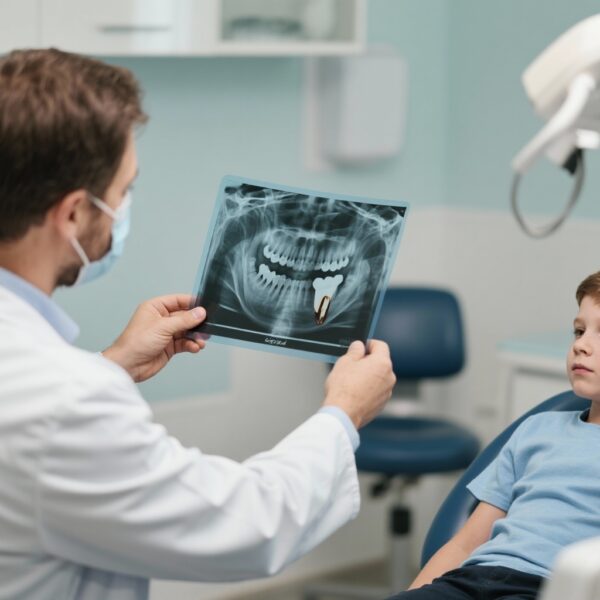Introduction: The Rise of the Gut-Autism Hypothesis
Autism spectrum disorder (ASD) diagnoses have increased over the past decade, leading scientists and families alike to search for potential biological explanations beyond genetics. One popular hypothesis centers on the gut microbiome—the trillions of microorganisms residing in our intestines—and its possible impact on autism through the so-called “gut-brain axis.” This concept suggests that intestinal bacteria can influence brain function and behavior, providing a promising avenue for understanding autism’s complexities and identifying novel treatments.
Interest in this idea was further boosted by observations that individuals with ASD frequently experience gastrointestinal (GI) problems compared to their neurotypical peers. Early studies proposed that a “leaky gut” or imbalanced microbiome might underlie both digestive symptoms and certain behavioral features of autism. As a result, the gut microbiome emerged as a hot topic in autism research, featured widely in the scientific literature and popular media.
What the Evidence Shows: Human Studies, Animal Models, and Clinical Trials
The hypothesis that gut bacteria causally contribute to autism rests on three main pillars: human observational studies, preclinical experiments in mice, and human clinical trials.
In observational studies, researchers have compared the gut microbiomes of individuals with and without ASD. However, many of these studies have had small sample sizes—sometimes fewer than 50 participants per group—which limits their power to detect meaningful differences. When confounding factors like diet, food preferences, and shared genetics are taken into account, the supposed differences in gut bacteria often disappear. Larger and more carefully controlled studies using sibling controls have found no consistent microbial composition differences related to autism.
Animal models have attempted to demonstrate causality more directly. For example, some high-profile experiments transplanted gut bacteria from children with ASD into germ-free mice, reporting that these mice exhibited “autistic-like” behaviors. Yet, these studies have faced criticism for small experimental groups, vague behavioral definitions, and statistical methods that may inflate the significance of results. Moreover, it remains unclear to what extent mouse behaviors can reflect human autism symptoms.
Clinical trials testing gut microbiome interventions, such as fecal transplants, have similarly struggled. Most trials lacked placebo controls, were open-label (meaning participants and researchers knew who received treatment), and used inconsistent measures of improvement. Even randomized controlled trials—the gold standard of clinical research—have often been underpowered and failed to demonstrate significant benefits over placebo.
Common Misinterpretations and Potential Pitfalls
The enthusiasm around the gut-autism link has occasionally led to overinterpretation of weak or inconsistent findings. The vast amount of data generated by microbiome sequencing allows for many different ways to analyze results, increasing the risk of false-positive findings, especially in small studies. This phenomenon is worsened by a tendency known as HARKing (hypothesizing after results are known), where vague research questions are retrofitted to match whatever patterns emerge from the data, rather than testing specific, pre-registered hypotheses.
Some early reports described “dysbiosis”—a disruption in normal microbial balance—in ASD subjects. Yet, this term often masks the lack of reproducible or consistent patterns across studies. The variability in diets, lifestyle, and environment among individuals with autism further complicates interpreting these findings.
It is also critical to recognize that gastrointestinal symptoms and microbiome differences observed in ASD may be consequences rather than causes of autism. Restricted diets and food sensitivities common in ASD can influence gut bacteria, without the microbiome necessarily exerting any causal influence on the condition.
Expert Perspectives: Calls for Rigorous Science or Reconsideration
A recent comprehensive review by Mitchell and colleagues published in Neuron casts strong doubt on the evidence supporting a causal role of the gut microbiome in autism. The authors emphasize the conceptual and methodological flaws in the body of research, highlighting inconsistent and statistically weak findings across human and animal studies, as well as clinical trials.
Dorothy Bishop, DPhil, a developmental neuropsychologist at the University of Oxford and senior author of the review, notes, “The initial impression that this literature as a whole represents a body of supportive work disintegrates when one looks at the details, with little consistency in findings from study to study.”
At the same time, neuroscientist Lisa Aziz-Zadeh, PhD, from the University of Southern California, who studies gut metabolites and brain function, cautions against dismissing the field entirely. She stresses the need for more precise hypotheses, larger sample sizes, and better-controlled studies to clarify the potential links.
Path Forward: Two Possible Roads
The authors of the review propose two directions for future research on the gut microbiome and ASD:
1. Continue with Rigor: This approach involves designing studies with clear, pre-specified hypotheses, adequate sample sizes to ensure statistical power, preregistration of protocols, standardized methodologies, and commitment to replication before publication. True triangulation—seeking converging evidence from multiple independent methods—is essential.
2. Admit a Possible Dead End: Alternatively, the field may consider that continued heavy investment into the gut-autism connection is unlikely to yield definitive insights. Scientists should critically assess what evidence would convincingly support a causal link before proceeding further.
Broader Context: The Microbiome’s Overextended Reach?
The issues highlighted in autism research mirror challenges faced in microbiome studies of other conditions, including depression, anxiety, ADHD, schizophrenia, and Parkinson’s disease. The tendency to find “associations” based on small, flexible analyses without robust replication appears widespread. This suggests a need for caution when interpreting microbiome research claims across a variety of disorders.
Emma’s Journey
Emma, a 7-year-old girl diagnosed with ASD, experiences chronic constipation and selective eating habits. Her parents read online about the gut-brain axis and wonder if altering her diet or trying microbiome therapies could improve her behavior and GI symptoms.
After consultation, Emma’s care team explains that while gastrointestinal issues are common in ASD, the science does not yet support using specific microbiome treatments to alter autism symptoms. They emphasize addressing her dietary needs and GI problems directly and continuing evidence-based behavioral therapies.
This scenario exemplifies the importance of balancing hope with scientific rigor and ensuring families receive accurate information to make informed decisions.
Conclusion
The notion that gut microbiome dysregulation causally contributes to autism spectrum disorder has attracted considerable attention and hope. Yet, a critical appraisal of the evidence reveals major conceptual and methodological shortcomings, inconsistent and irreproducible findings, and a lack of compelling evidence for causality. While the microbiome remains an intriguing area of study, researchers must adopt more rigorous approaches or reconsider focusing on this pathway in autism research. Families and clinicians should remain cautious about unproven microbiome-based therapies and rely on established, evidence-backed interventions for ASD management.
References
– Mitchell, K. J., et al. “Conceptual and methodological flaws undermine claims of a link between the gut microbiome and autism.” Neuron, vol. 0, no. 0, 2024.
– Bishop, D. V. “Review on autism-microbiome research consistency issues,” University of Oxford, 2024.
– Aziz-Zadeh, L. “Commentary on gut metabolites and brain function,” University of Southern California, 2024.
(Note: Additional standard references relevant to autism and microbiome research would be listed in a full academic article.)




